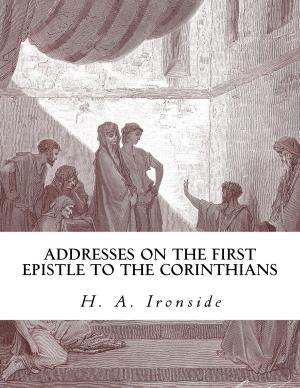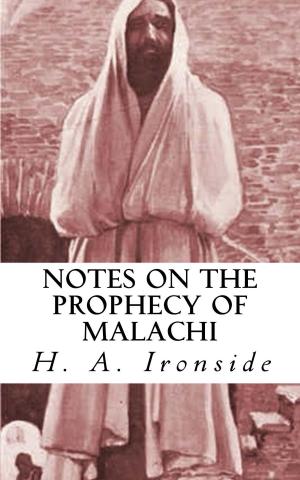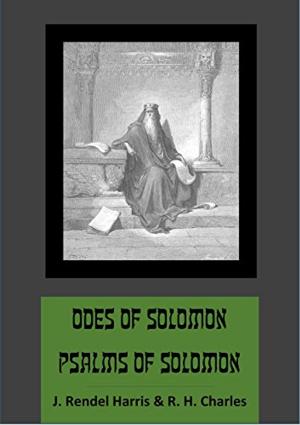Bernhard Weiss and the New Testament
Nonfiction, Religion & Spirituality, Christianity, Christian Literature, Bible & Bible Studies| Author: | Caspar René Gregory | ISBN: | 1230001944952 |
| Publisher: | CrossReach Publications | Publication: | September 30, 2017 |
| Imprint: | Language: | English |
| Author: | Caspar René Gregory |
| ISBN: | 1230001944952 |
| Publisher: | CrossReach Publications |
| Publication: | September 30, 2017 |
| Imprint: | |
| Language: | English |
Scholars are continually tantalized by all manner of announcements touching the birthday festivals of men whom they delight to honor, announcements that reach them a month or six weeks after the happy day, at a time at which they can either no longer send their congratulations, or at best can only send them in a limping way. Besides, even where the theological reader does not feel inclined to venture a letter of good wishes, he likes to know of the day beforehand, and to be able on the day to think of its interest for him and for theology in general. The great scholar whose name stands at the head of this article is one of those who draw upon the feelings of an extremely wide circle of men, men that have sat at his feet in one or other of the universities at which he has taught, or, and these are still more numerous, that have devoured the books written by him. It will therefore give pleasure to his many admirers in America to learn that he is soon to celebrate his seventieth birthday, and to think that they can, according to their fancy, send him word of their thoughts of him, or can mark the day for themselves and their immediate surroundings. Professor Bernhard Weiss, of the University of Berlin, has perhaps studied the New Testament in some respects more thoroughly than any other living man. There are two or three who stand near him in this respect, but they have, after all, given their thoughts free play in other directions, or have not been able to reach the same amount of work that he has been so happy as to accomplish. Nor is it probable that his work is by any means at an end, humanly speaking. The writer had the privilege, a few weeks ago, of doing ten hours’ work with him, and found that his crispness and freshness in seizing a thought and in formulating it were still such as might excite the envy of younger men.
It is worth while at a milestone like this to look back over the life and work of the leader, and to sum up the results attained, so that we may the more vividly feel and express our sense of thankfulness to him. Bernhard Weiss was born on the twentieth of June, 1827, at Koenigsberg, that eastern and northern city of Germany that reminds us of Kant, and that in spite of its Labradorian latitude rivaled New York in the sunstrokes of the summer of 1896. His family showed the frequent union between theology and the school that is found all the world over and especially in Germany. His great grandfather was a teacher in Silesia, and his grandfather was a clergyman and teacher at Koenigsberg. His father was a councillor of the Consistory at Koenigsberg. We must remember that with his grandfather we reach far back into the religious movements of the closing eighteenth century. His grandfather was a rationalist, whereas his father became one of the most zealous champions of the returning piety, a very severe man, a man of an enormous power of work (we shall find the same power in the son), a Christian who leaned somewhat towards a pietistic cast of religion, and withal a man who had a strong sense of humor. That was a good field for the planting of a theologian who was to stand in the hard battles of these latter days. If we remember the date and the fact that but few years had passed since the Corsican devastator had wasted and oppressed and insulted Prussia, it is easy to see that a child growing up at that day would have to endure hardness in many ways, and would early learn to work. The school-days over he had at once to support himself by giving lessons, and the material care for his family, for the old home, lay upon him until the time of his moving to Kiel.
Scholars are continually tantalized by all manner of announcements touching the birthday festivals of men whom they delight to honor, announcements that reach them a month or six weeks after the happy day, at a time at which they can either no longer send their congratulations, or at best can only send them in a limping way. Besides, even where the theological reader does not feel inclined to venture a letter of good wishes, he likes to know of the day beforehand, and to be able on the day to think of its interest for him and for theology in general. The great scholar whose name stands at the head of this article is one of those who draw upon the feelings of an extremely wide circle of men, men that have sat at his feet in one or other of the universities at which he has taught, or, and these are still more numerous, that have devoured the books written by him. It will therefore give pleasure to his many admirers in America to learn that he is soon to celebrate his seventieth birthday, and to think that they can, according to their fancy, send him word of their thoughts of him, or can mark the day for themselves and their immediate surroundings. Professor Bernhard Weiss, of the University of Berlin, has perhaps studied the New Testament in some respects more thoroughly than any other living man. There are two or three who stand near him in this respect, but they have, after all, given their thoughts free play in other directions, or have not been able to reach the same amount of work that he has been so happy as to accomplish. Nor is it probable that his work is by any means at an end, humanly speaking. The writer had the privilege, a few weeks ago, of doing ten hours’ work with him, and found that his crispness and freshness in seizing a thought and in formulating it were still such as might excite the envy of younger men.
It is worth while at a milestone like this to look back over the life and work of the leader, and to sum up the results attained, so that we may the more vividly feel and express our sense of thankfulness to him. Bernhard Weiss was born on the twentieth of June, 1827, at Koenigsberg, that eastern and northern city of Germany that reminds us of Kant, and that in spite of its Labradorian latitude rivaled New York in the sunstrokes of the summer of 1896. His family showed the frequent union between theology and the school that is found all the world over and especially in Germany. His great grandfather was a teacher in Silesia, and his grandfather was a clergyman and teacher at Koenigsberg. His father was a councillor of the Consistory at Koenigsberg. We must remember that with his grandfather we reach far back into the religious movements of the closing eighteenth century. His grandfather was a rationalist, whereas his father became one of the most zealous champions of the returning piety, a very severe man, a man of an enormous power of work (we shall find the same power in the son), a Christian who leaned somewhat towards a pietistic cast of religion, and withal a man who had a strong sense of humor. That was a good field for the planting of a theologian who was to stand in the hard battles of these latter days. If we remember the date and the fact that but few years had passed since the Corsican devastator had wasted and oppressed and insulted Prussia, it is easy to see that a child growing up at that day would have to endure hardness in many ways, and would early learn to work. The school-days over he had at once to support himself by giving lessons, and the material care for his family, for the old home, lay upon him until the time of his moving to Kiel.















